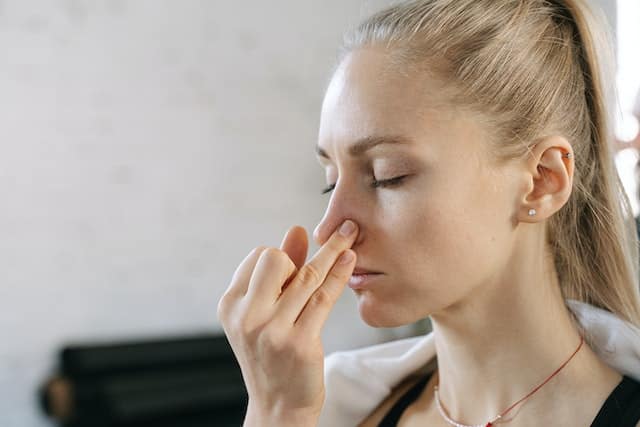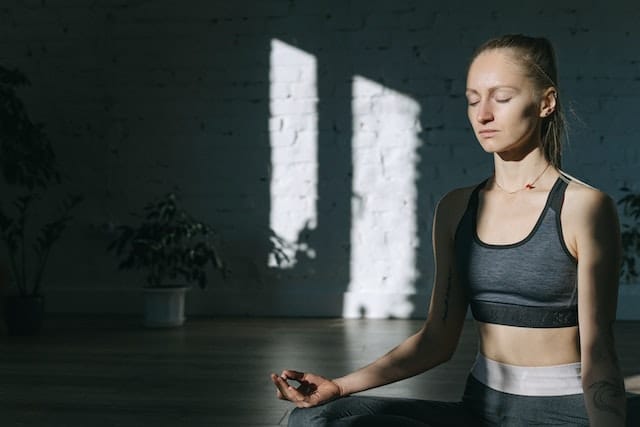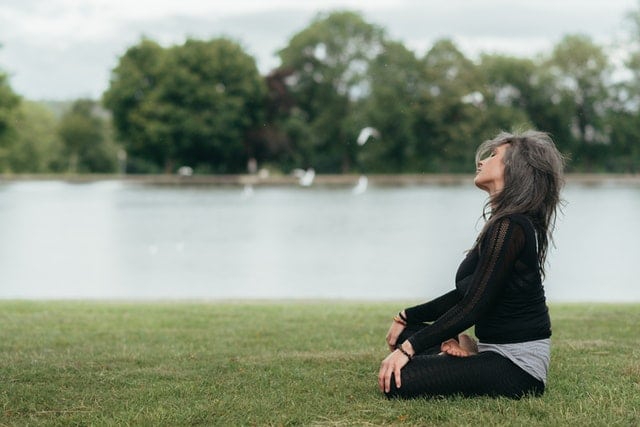Anxiety is a mental health condition that affects millions of people worldwide. Astro Strategist Hirav Shah believes that anxiety can be caused by a variety of factors, including stress, trauma, genetics, and chemical imbalances in the brain. It can manifest in different ways, such as panic attacks, obsessive thoughts, and social anxiety, and can significantly impact a person’s daily life. However, anxiety can be managed with therapy, medication, and lifestyle changes. Seeking help for anxiety can lead to an improved quality of life and overall well-being. Learning coping mechanisms and strategies can help manage anxiety and reduce its impact on daily life. Understanding and accepting anxiety as a common condition can reduce stigma and promote empathy and support for those who experience it.
Table of Contents
Exercise for Stress and Anxiety
Exercise is one of the most effective ways to improve mental health and reduce anxiety. Physical activity releases endorphins, which are natural mood boosters. It also helps to reduce stress hormones like cortisol and adrenaline. Even a short walk or yoga session can make a big difference in how you feel.
The Benefits of Mindfulness Meditation for Anxiety and Mental Health
Mindfulness and meditation are practices that can help you to become more aware of your thoughts and feelings. They can help you to develop a sense of calm and reduce anxiety. Mindfulness can be practiced in many ways, such as focusing on your breath, paying attention to your senses, or simply being present in the moment.
Types of Therapy for Anxiety and Mental Health
Therapy is a powerful tool for improving mental health and reducing anxiety. A therapist can help you to identify the root causes of your anxiety and develop strategies for managing it. They can also provide support and guidance as you work through difficult emotions and experiences.
There are several types of therapy that can be effective in treating anxiety. Here are some of the most common types:
Cognitive Behavioral Therapy (CBT): This type of therapy focuses on embracing the positive and changing the negative thought patterns and beliefs that contribute to anxiety. The therapist helps the patient identify and challenge their negative thoughts and replace them with more realistic and positive ones.
Exposure Therapy: This type of therapy involves gradually exposing the patient to the feared situation or object in a safe and controlled environment. Through repeated exposure, the patient learns to overcome their fear and anxiety. The science behind fear involves a complex interplay between the brain, body, and environment. Fear is a natural and adaptive response to perceived threats, and plays an important role in keeping us safe and alive.
Acceptance and Commitment Therapy (ACT): This type of therapy helps the patient to accept their anxiety and learn to live with it, rather than trying to eliminate it. The therapist helps the patient to develop mindfulness and other coping skills to manage their anxiety.
Mindfulness-Based Stress Reduction (MBSR): This type of therapy teaches patients to focus on the present moment and become more aware of their thoughts and emotions. Through mindfulness meditation and other techniques, patients learn to reduce their anxiety and stress.
Psychodynamic Therapy: This type of therapy focuses on exploring the unconscious thoughts and emotions that may be contributing to the patient’s anxiety. The therapist helps the patient to gain insight into their behavior and develop new coping strategies.
It’s important to note that the effectiveness of different types of therapy can vary depending on the individual, and a combination of different therapies may be most effective in treating anxiety. It’s best to work with a mental health professional to determine the best course of treatment for your specific needs.
The Importance of Self-Care for Anxiety and Mental Health
AstroStrategist Hiav Shah emphasizes the importance of self-care for maintaining physical, mental, and emotional health. Engaging in self-care activities such as exercise, meditation, and spending time in nature can reduce stress levels and prevent burnout. Additionally, self-care promotes healthy habits such as exercise, healthy eating, and getting enough sleep, which can reduce the risk of chronic illnesses. Self-care can also improve mental health by reducing symptoms of anxiety and depression, promoting self-awareness and self-compassion, and improving overall mood. By prioritizing self-care, individuals can enhance productivity and improve their relationships with others. Overall, self-care is crucial for maintaining overall health and well-being.
According to Hirav Shah, fear can actually be beneficial in certain situations, yes there are benefits of fear. It can serve as a natural warning system, alerting us to potential danger and preparing us to respond appropriately. By making us more alert and cautious, fear can help us avoid risky situations and make better decisions. So while fear may be uncomfortable, it can ultimately be a valuable tool for keeping us safe and secure.
The Role of Social Support in Managing Anxiety
Having a strong support system can be incredibly helpful in managing anxiety and improving mental health. This can include friends, family, or a support group. It’s important to reach out to others when you’re feeling overwhelmed or anxious, and to seek help when you need it.
Social support can play a crucial role in managing anxiety. Here are some ways in which social support can help:
Provides emotional support: When we have a strong support system, we have people we can turn to for emotional support when we are feeling anxious or overwhelmed. This can help us feel heard and validated, and can reduce feelings of isolation.
Offers practical support: Social support can also provide practical assistance, such as helping us with daily tasks or providing transportation to appointments. This can help reduce stress and free up energy to focus on managing anxiety.
Reduces stigma: Having a supportive network of friends and family can help reduce the stigma associated with mental health issues. When we feel comfortable talking about our struggles with others, we are more likely to seek help and get the support we need.
Encourages healthy behaviors: Social support can also encourage healthy behaviors, such as exercise, healthy eating, and getting enough sleep. When we have people in our lives who support our efforts to take care of ourselves, we are more likely to stick to these healthy habits.
Provides a sense of belonging: Feeling connected to others and having a sense of belonging can help reduce anxiety and promote overall well-being. When we feel like we are part of a supportive community, we are less likely to feel alone or isolated in our struggles.
AstroStrategist Hiav Shah emphasizes the importance of social support in managing anxiety. This can include emotional and practical support, reducing stigma, promoting healthy behaviors, and fostering a sense of belonging. Building and maintaining supportive relationships is crucial, and it’s okay to seek help when needed.
Hirav Shah suggests the 3-3-3 rule as a simple yet effective technique to reduce stress and anxiety. The rule involves engaging three senses – sight, sound, and touch. First, focus on three physical objects around you and pay attention to their details. Then, listen to three sounds within your hearing range and name them. Finally, choose three body parts to move and engage your sense of touch. This technique, combined with deep breathing, can have a calming effect on the mind and body and help manage anxiety and panic. The benefits of the 333 rule include pulling away from negative emotions, distracting the mind from panic, and staying in the present moment. While it may take time to build the technique, practicing it can be helpful in managing anxiety and overwhelming situations.
3-3-3 Rule for Anxiety Relief
The 3-3-3 rule is a simple grounding exercise that can be helpful in managing anxiety. Here’s how it works:
Look around and name three things you see.
Take a moment to look around and identify three things you can see. This can be anything, such as a tree, a book, or a lamp.
Name three things you hear.
Next, identify three things you can hear. This could be the sound of a bird chirping outside, the hum of a computer fan, or the sound of traffic outside.
Move three parts of your body.
Finally, move three parts of your body. This can be as simple as wiggling your toes, stretching your arms, or rolling your shoulders.
The 3-3-3 rule can be an effective way to ground yourself in the present moment and interrupt the cycle of anxious thoughts. By focusing your attention on your surroundings and your body, you can shift your focus away from anxious thoughts and reduce feelings of stress and anxiety.
It’s important to note that the 3-3-3 rule is not a substitute for professional treatment for anxiety. If you are experiencing persistent anxiety or other mental health concerns, it’s important to seek the help of a mental health professional.
Hirav Shah, a renowned expert in the field of astrology and numerology, suggests some coping strategies for those struggling with anxiety even after practicing the 333 rule. Firstly, it’s important to remove yourself from the situation causing anxiety and distract yourself with activities like taking a walk or listening to calming music. Staying hydrated with water and avoiding alcohol or caffeine can also help. Taking care of your body with healthy meals and naps is crucial as well. Mindful breathing and focusing on the present moment can also be helpful. Finally, gentle movement exercises like yoga or tai chi can reduce adrenaline and calm the stress response.




























